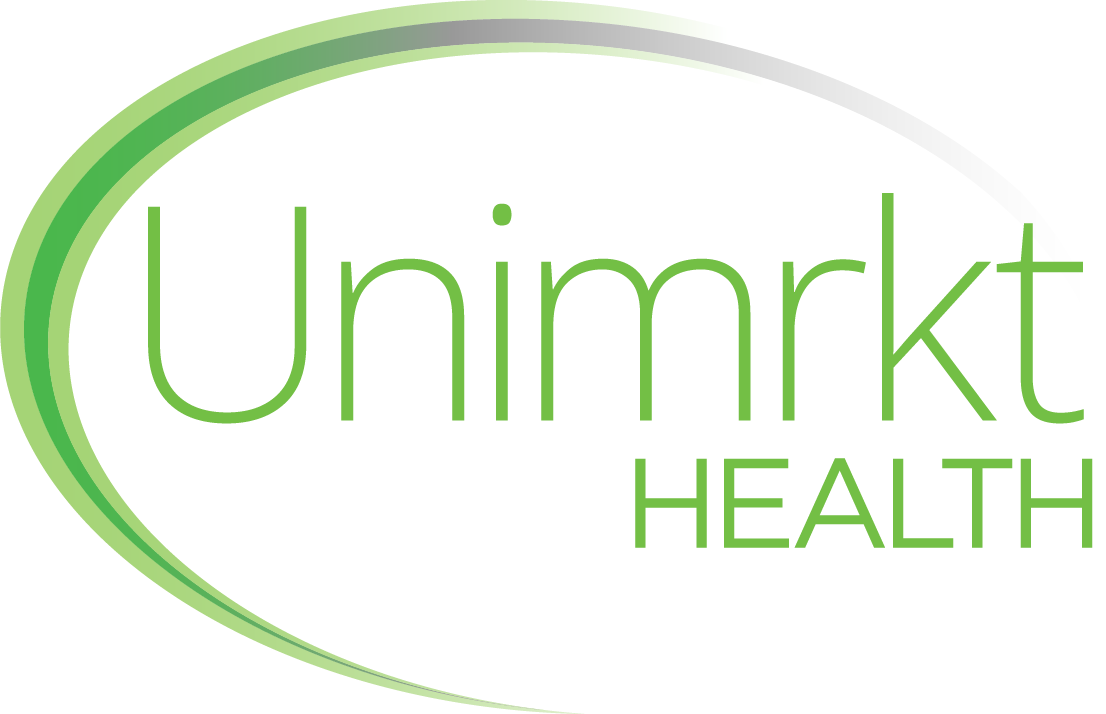Pharmaceutical Market Research in 2024: What Has Changed?
- Unimrkt Healthcare » Blog » Pharmaceutical Market Research in 2024: What Has Changed?
The pharmaceutical industry is undergoing a seismic transformation. From groundbreaking advancements in AI to shifts in global healthcare needs, pharmaceutical market research has evolved rapidly, enabling pharma companies to adapt to a fast-paced, data-driven landscape. These seismic changes have again highlighted the crucial role of pharma market research, as companies and investors need real-time data to make well-informed decisions. Pharmaceutical market research has transitioned from a reactive model, where historical data drove decisions, to a proactive one. Now, real-time insights and predictive data allow organizations to anticipate trends, regulatory changes, and market demands. This shift is particularly important as Key Opinion Leader (KOL) research—an essential part of pharma market research—demands timely and accurate intelligence on influential voices within the industry. By adopting a proactive approach, pharma market research companies can provide life sciences and pharmaceutical companies with up-to-the-minute insights that directly inform strategic and operational decisions. With life sciences and pharma market research companies leveraging AI, new strategies and tools are making it possible to gain quicker, deeper, and more reliable insights. In today’s blog, we will explore how pharmaceutical market research has changed in 2024 and figure out what’s waiting in the future. Let’s get started!
Where Pharmaceutical Market Research is Headed
Artificial intelligence (AI) and machine learning (ML) are revolutionizing pharmaceutical market research. These technologies are now enabling pharmaceutical market research companies to sift through vast data repositories at unprecedented speeds, bringing insights to the forefront that would otherwise remain hidden. AI-powered platforms now offer semantic search and Smart Synonyms™ technology, which understands the intent behind queries, offering precise results for life science market research and KOL research. For pharma market research companies, the ability to uncover trends and patterns instantaneously is invaluable, as it enhances strategy development, product innovation, and investment decisions. Modern pharmaceutical market research is no longer restricted to limited or static datasets. Today, pharma market research companies pull data from extensive content libraries that cover everything from clinical trials and regulatory filings to global healthcare trends. Today, we have got platforms that aggregate a wide range of high-quality sources—including ClinicalTrials.gov, FDA documents, and WHO data— hence streamlining the research process. Such a comprehensive approach allows life science and pharma market research companies to present a holistic view, essential for KOL pharmaceutical industry professionals and researchers alike. Access to these robust datasets provides pharmaceutical organizations with the tools needed for data-backed, strategic decisions.
The Rise of Sentiment and Predictive Analysis Powered by AI
Sentiment analysis and predictive analytics have revolutionized modern market research in the pharmaceutical industry. Using natural language processing (NLP), sentiment analysis tools can quickly gauge public and professional sentiment on topics such as new drug releases, clinical trials, and regulatory changes. This is particularly valuable in the KOL pharmaceutical industry, as the influence of KOLs often sways industry perspectives. Accurately predicting market responses and identifying sentiment trends allows pharma market research companies to enable organizations to make preemptive adjustments to their strategies, ensuring they remain aligned with industry and consumer expectations. On the other hand, generative AI is reshaping pharma market research by enabling quicker and more accurate insights from vast data sources. Unlike traditional AI, generative AI tools provide business-grade insights, which are purpose-built for competitive intelligence and KOL research. For instance, tools like Smart Summaries allow researchers to capture critical insights during earnings seasons and gain expert-approved SWOT analysis in real-time. With applications ranging from tracking competitor initiatives to extracting KPIs, this advanced AI-driven research provides life sciences companies and pharma market research companies a competitive advantage by offering nuanced insights specific to the pharmaceutical landscape. Regulatory and clinical pipeline tracking has always been crucial for pharmaceutical companies. However, as data complexity and regulatory demands grow, traditional tracking methods are becoming obsolete. Modern platforms now enable pharmaceutical market research companies to monitor global regulatory content from sources such as the FDA, EMA, and PubMed. This is invaluable for pharma professionals, allowing them to stay updated on developments in clinical trials and approvals, ultimately streamlining their regulatory navigation processes. Through these tools, market research in the pharmaceutical industry becomes faster, more efficient, and aligned with the industry’s stringent standards.
9 Key Trends in Pharmaceutical Market Research for 2024
As the pharmaceutical industry continues to evolve, market research practices are undergoing transformative changes to meet new demands and leverage emerging technologies. Here are some of the key trends shaping pharmaceutical market research in 2024:
1. Increased Use of Artificial Intelligence and Machine Learning
AI and machine learning have become foundational to life science market research, empowering pharmaceutical market research companies to process and analyze large datasets faster than ever. By integrating AI, pharma market research companies can extract insights on drug development, consumer preferences, and emerging trends with precision. AI-driven predictive modeling also allows researchers to forecast shifts in patient needs and regulatory requirements, providing a forward-looking approach to pharmaceutical market research.
2. Enhanced KOL Research for Strategic Decision-Making
KOL research remains a critical component of pharma market research, but with advanced data analysis tools, it’s now possible to track KOL influence in real time and across more channels. Understanding the impact of KOLs in shaping medical perspectives and guiding treatment trends is essential, especially within the KOL pharmaceutical industry. In 2024, pharmaceutical market research companies are leveraging AI-enhanced sentiment analysis and social listening tools to monitor KOL influence, helping companies make informed decisions on drug development and marketing strategies.
3. Expansion of Real-Time and Predictive Analytics
The need for timely insights is pushing pharmaceutical companies toward real-time analytics, making traditional static reports increasingly obsolete. Real-time data analytics offers pharmaceutical companies instant visibility into competitor activities, drug efficacy, and patient needs, enabling agile responses to changes in the market. Predictive analytics further supports life science market research by offering insights into future trends, such as disease prevalence or regulatory adjustments, making it a crucial tool for strategic planning in the pharma market research landscape.
4. Integration of Social Determinants and Behavioral Health Data
Pharmaceutical companies are recognizing the importance of integrating social and behavioral health data into their market research. Factors like socioeconomic status, lifestyle, and environmental influences significantly impact patient outcomes and treatment adoption. Incorporating this data helps pharmaceutical market research companies gain a holistic view of patient needs and treatment barriers, enabling them to develop more targeted solutions. This trend reflects a shift towards patient-centered strategies when it comes to market research in the pharmaceutical industry, addressing health disparities and enhancing drug effectiveness.
5. Focus on Patient-Centric and Personalized Medicine Insights
Personalized medicine has seen rapid growth as patients and providers increasingly prioritize individualized treatments. Pharmaceutical market research now emphasizes patient-centric data, seeking to understand how demographics, genetics, and specific health needs influence treatment choices. As a result, pharma market research companies can now help enable the development of targeted therapies that align closely with patient profiles, ultimately improving treatment outcomes. This trend is instrumental in driving innovation and adapting to the unique needs of different patient groups.
6. Advancements in Digital Health and Telemedicine Data Collection
With the rise of telemedicine and digital health tools, pharmaceutical companies have unprecedented access to real-world data. Digital health platforms generate valuable insights into patient behaviors, treatment adherence, and outcomes. Market research in the pharmaceutical industry is increasingly leveraging this data to inform drug development, refine marketing strategies, and better understand treatment landscapes. By tapping into the wealth of data available through digital health tools, pharma market research companies can enhance patient engagement and make data-driven decisions that resonate in today’s digital-first environment.
7. Growing Importance of Competitive and Pipeline Analysis
In a competitive landscape, understanding competitors’ pipelines and market strategies is more crucial than ever. Pharmaceutical market research companies are focusing on in-depth competitive analysis to track upcoming drug launches, clinical trial progress, and regulatory filings. With advanced tools, life science market research professionals can now monitor competitor pipelines in real-time, anticipating moves that might impact their positioning.
8. Leveraging Multi-Channel Engagement and Social Listening
In today’s digital age, patients, doctors, and stakeholders communicate across multiple platforms, including social media, online forums, and telehealth portals. Multi-channel engagement allows pharma market research companies to capture a diverse array of perspectives, from patient experiences to KOL opinions. Social listening tools are becoming increasingly valuable for tracking sentiments, trends, and emerging needs in the KOL pharmaceutical industry.
9. Strategic Focus on Sustainability and Health Equity
Sustainability and health equity are becoming central to the pharmaceutical industry’s goals, with companies now factoring these priorities into their research and development processes. Life science market research is increasingly exploring the role of environmental and social factors in healthcare access and outcomes. By focusing on sustainability, pharma market research companies can now help guide pharmaceutical organizations toward innovations that not only support health equity but also align with broader environmental and social governance (ESG) goals, demonstrating a commitment to creating value beyond profit.
We Can Help
The landscape of pharmaceutical market research in 2024 has evolved to meet the complex demands of a rapidly changing industry. Looking forward, market research in the pharmaceutical industry is expected to see further integration of AI, machine learning, and big data. Advanced platforms will continue to expand the content universe accessible to pharma market research companies. As life science market research becomes increasingly sophisticated, forward-thinking organizations will rely on these advancements to maintain a competitive edge. The demand for accurate and efficient insights into trends, competitor analysis, and KOL pharmaceutical industry perspectives will only grow. That’s why the need for an adaptive, tech-driven approach to pharmaceutical market research is gaining pace. Embracing these new tools and strategies will be vital for pharmaceutical organizations seeking to stay competitive and relevant in this ever-evolving industry. It’s the perfect time to invest in life science market research to stay updated with recent developments and groundbreaking discoveries. If you are looking for pharmaceutical market research companies with an impeccable track record of conducting medical market research, look no further than Unimrkt Healthcare. Throughout the years, we have consistently applied scientifically validated methodologies for research in the health industry, ensuring the delivery of actionable data through meticulous targeting of respondents. To learn more about how we can help you with your market research endeavors, call +91-124-424-5210, +91-9870-377-557, or email sales@unimrkthealth.com. You may also fill out ourcontact form, and our team of experts will assist you as soon as possible.
Recent Posts
- 10 Medical Online Survey Mistakes You Must Leave Behind in 2025
- How Qualitative Healthcare Research Can Accelerate Ethical AI Adoption
- Trust as a Growth Strategy: What Healthcare Leaders Can Learn From Business Market Analysis
- Mapping the Healthcare Value Chain: A Market Research Perspective
- Decoding Emotional Triggers in Treatment Choices: A Qualitative Approach
Archives
Quick Enquiry
Customer Service, We Make it Better
Related Posts:
Let's Connect
Please, fill in the form to get in touch!



